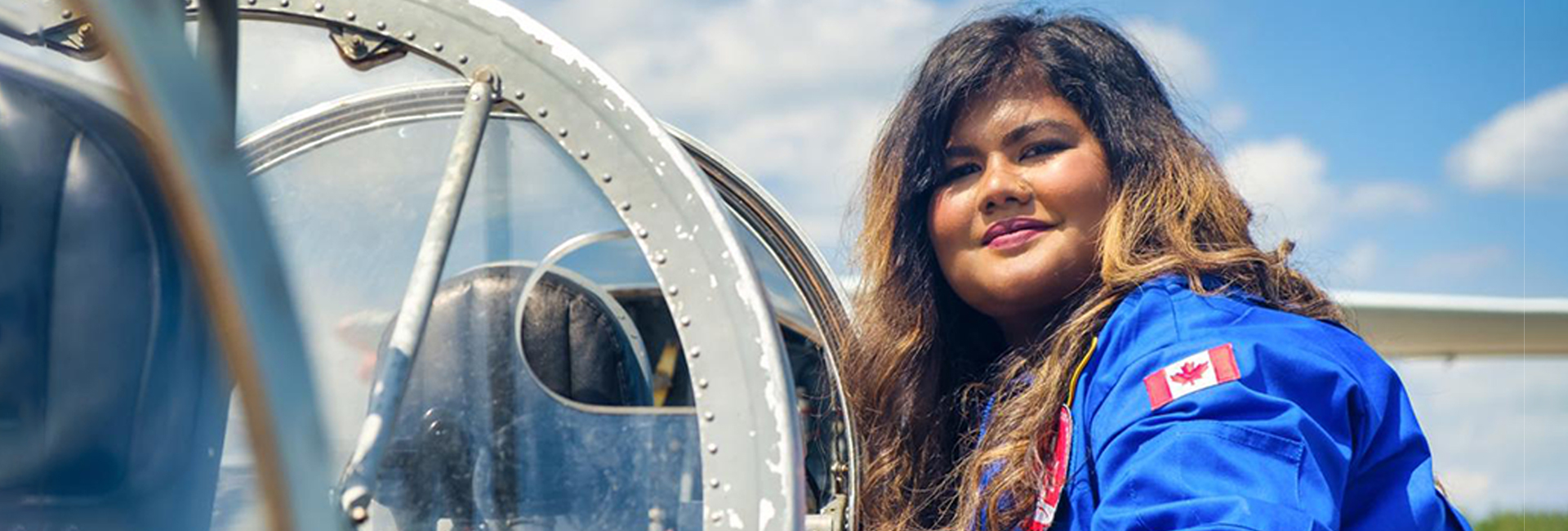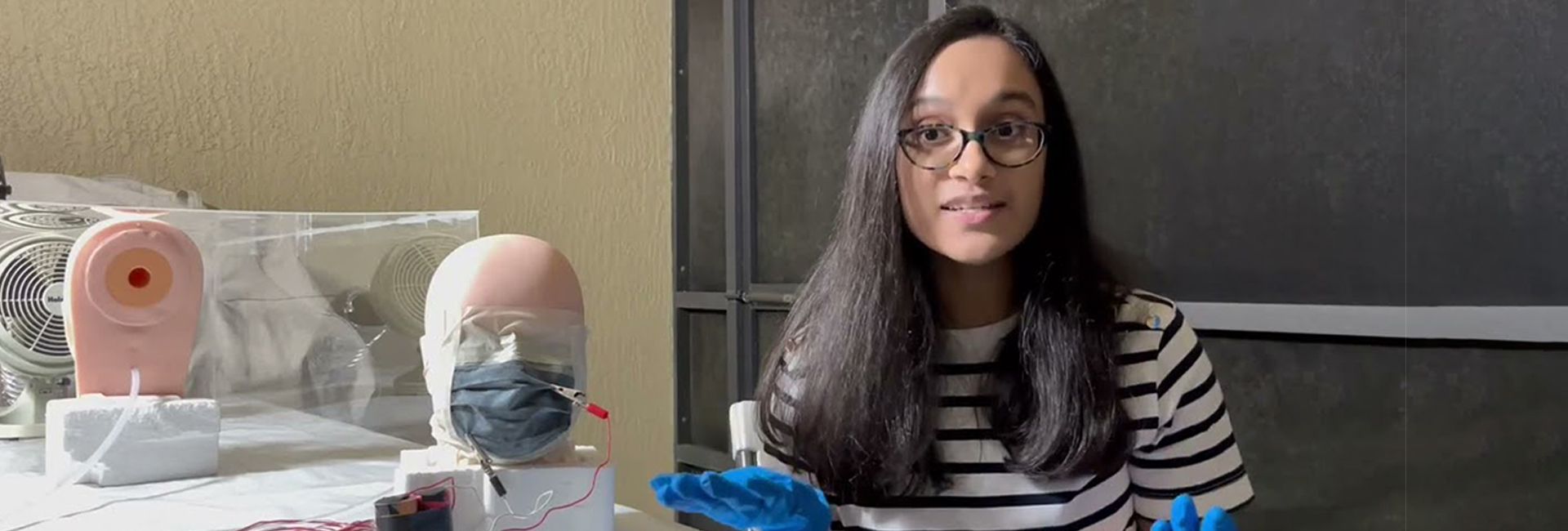(March 1, 2023) “Picture this – climbing a flight of stairs without the gift of sight. Can you imagine it? It seems impossible, right? But what if I told you that today, my 13 incredible kids from the Government School for the Visually Impaired in Trivandrum, India, accomplished something even more remarkable – they built, assembled, and launched FIVE model rockets,” wrote an ecstatic Aathira Preetharani on her LinkedIn. The Canada-based citizen astronaut, who was selected by International Institute for Astronautical Sciences for astronaut training last year, made the “impossible” possible when she mentored visually-impaired kids to build and launch model rockets. It was at the end of November 2022 that Aathira found herself in the company of some immensely talented kids when she was invited as a chief guest for an UN-affiliated program at the Government School for Visually Impaired in Trivandrum. Some questions hurled at her in that first meeting were, “How does a rocket look?”, “Have you been on a rocket?” Seeing their curiosity, Aathira promised to teach them how to build and launch their own rockets.
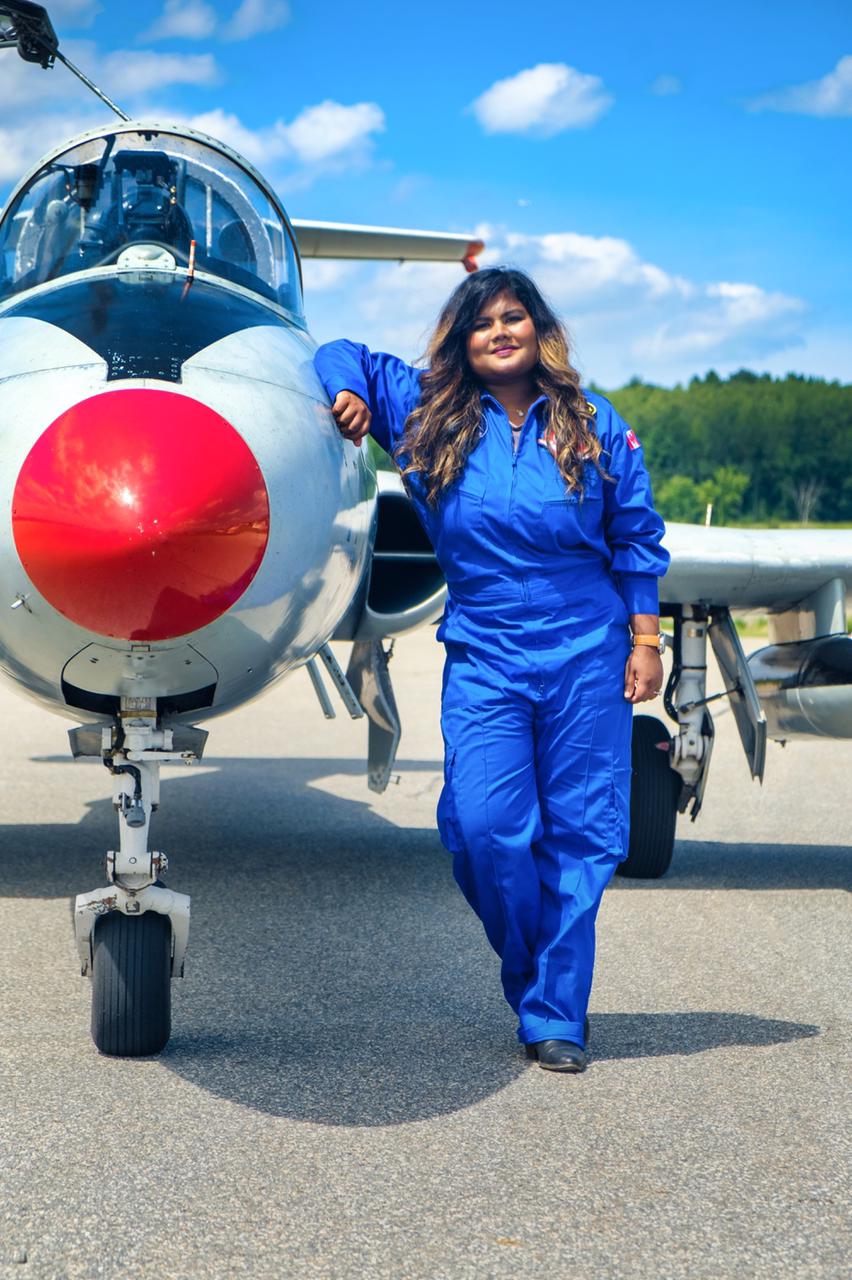
Aathira Preethranai is a space entrepreneur.
“I began reaching out to my contacts in space agencies, however, everyone told me that there is no technology to make rocketry available to these kids. That pushed me to stay back, and work on delivering what I had promised,” she tells Global Indian, adding that she started researching accessible ways to make rocket science and STEM education available to the visually-impaired kids. “It took a lot of redesigning but a month and a half later, I was ready with the concept and design, after help from the Rocketeers Research Institute, who provided adaptable materials that could fly while keeping safety as the priority,” she adds.
The students picked up fast. In two months, they were ready to launch their model rockets, creating a history of sorts in India – giving hope to 9.3 million visually impaired individuals in the country. “Until a couple of years ago, visually-impaired kids had no access to science beyond 10th grade in India as the notion was that such kids won’t find jobs. That’s what I want to change by making free space education accessible to everybody in India,” reveals Aathira, adding that people don’t understand the importance of space. “We use space for weather, GPS, agriculture et al. In fact, by 2040, the global space industry’s annual revenue could cross $1 trillion, thus helping create more jobs and a better economy. If India has to establish itself as a global power, the government will have to provide free and quality job-related space education.”
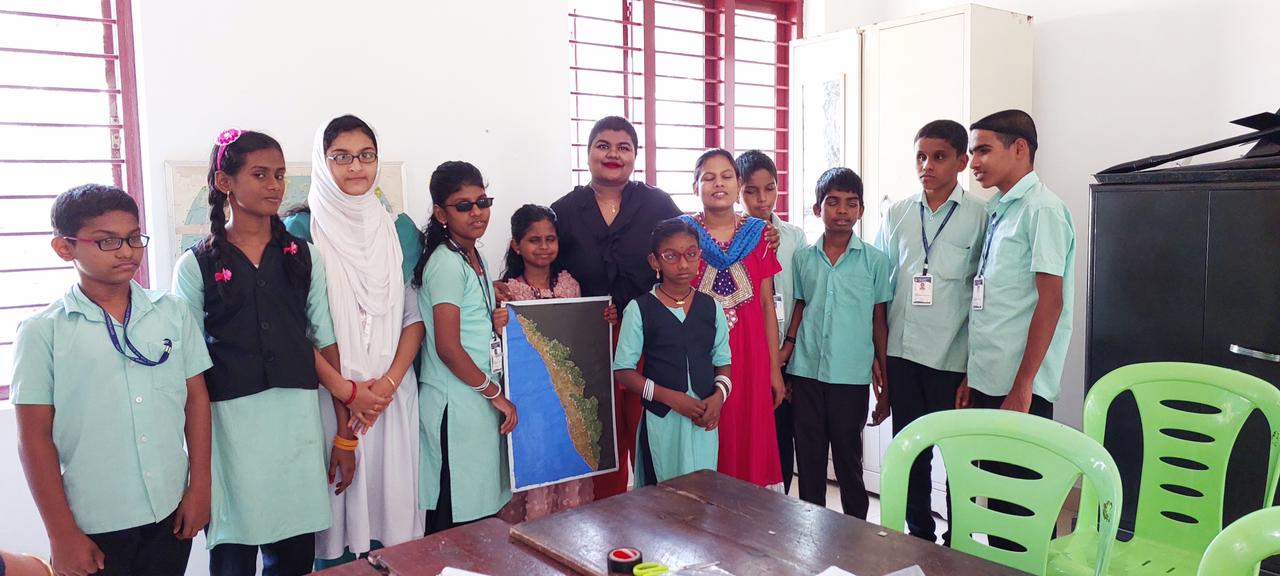

Aathira Preetharani with the students of Government School for Visually Impaired.
A slum dweller aiming for the stars
For someone who was born in a slum, Aathira had to face immense struggles, and now, as a woman undergoing astronaut training at the International Institute for Astronautical Sciences, she understands the importance of the right education. “Despite the abject poverty, my parents were adamant that we slept on a full stomach and had a quality education. My father would often burn the copper wire and trade the copper for food. My mother even sold off her tali (necklace) to get me admission to a private school,” Aathira recalls. However, things started to look up when her father moved abroad to find a job at an airport. Being a studious child, she would spend most of her time in her school’s library, getting her hands on any piece of education. “Due to limited resources, the library became my place of knowledge.”
By the time she turned 18, she knew she wanted to be a fighter pilot and an astronaut. But till 2016, women were not inducted into the Indian Air Force, and upon research, she found that she could make her dream come true in Canada. She enrolled in Algonquin College in Ottawa following two scholarships and started learning robotics. However, she soon switched to studying business as she was keen to start her space company. Amid this, her real reason for moving to Canada – to become a fighter pilot – was put on the back burner. But a Malayalam film Uyare turned out to be that nudge. “I remember travelling from Ottawa to Montreal to watch the film which is about a woman who wants to be a pilot. That one film made me resolve to work harder and realise my dream. I worked three jobs and saved enough money to pay for my flying introductory class at the end of 2019.”
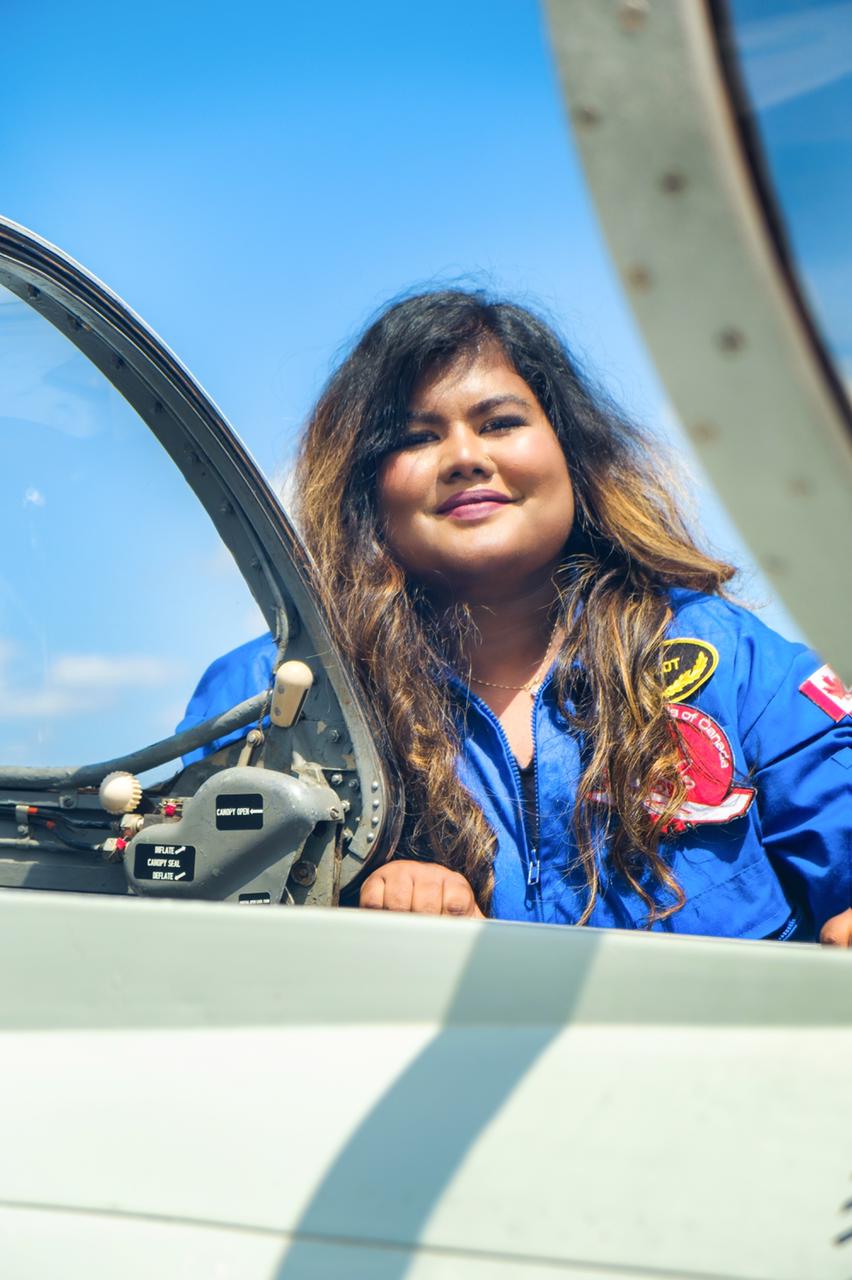

A space entrepreneur on a mission
The flying sessions were accompanied by baby steps into the world of entrepreneurship with her space company ExoGeo Aerospace, which she formally launched in 2021 along with her husband Gokul Das Balachandran, whom she met in Aastro – an astronomical group in Trivandrum. “I was 12 when I first learnt about the group, and it played a pivotal role in aspiring me to become an astronaut. At 18, I met Gokul at Aastro, who was then a rocket scientist with ISRO, and within a year we got married.”
Always interested in space debris, she started working on building her company which specialises in building space tugs to help service satellites and resolve the problem of space debris in earth’s orbit. Explaining further, she adds, “Rockets are made to send satellites to orbit. Once the satellites run out of fuel, they aimlessly stay in the orbit forever. And we make another satellite and send it. This has been happening ever since rockets started launching. This is what we call space debris (space junk) that’s rotating in the orbit at a very high speed, thus having a high chance of collision with other satellites, which could eventually lead to million pieces.”
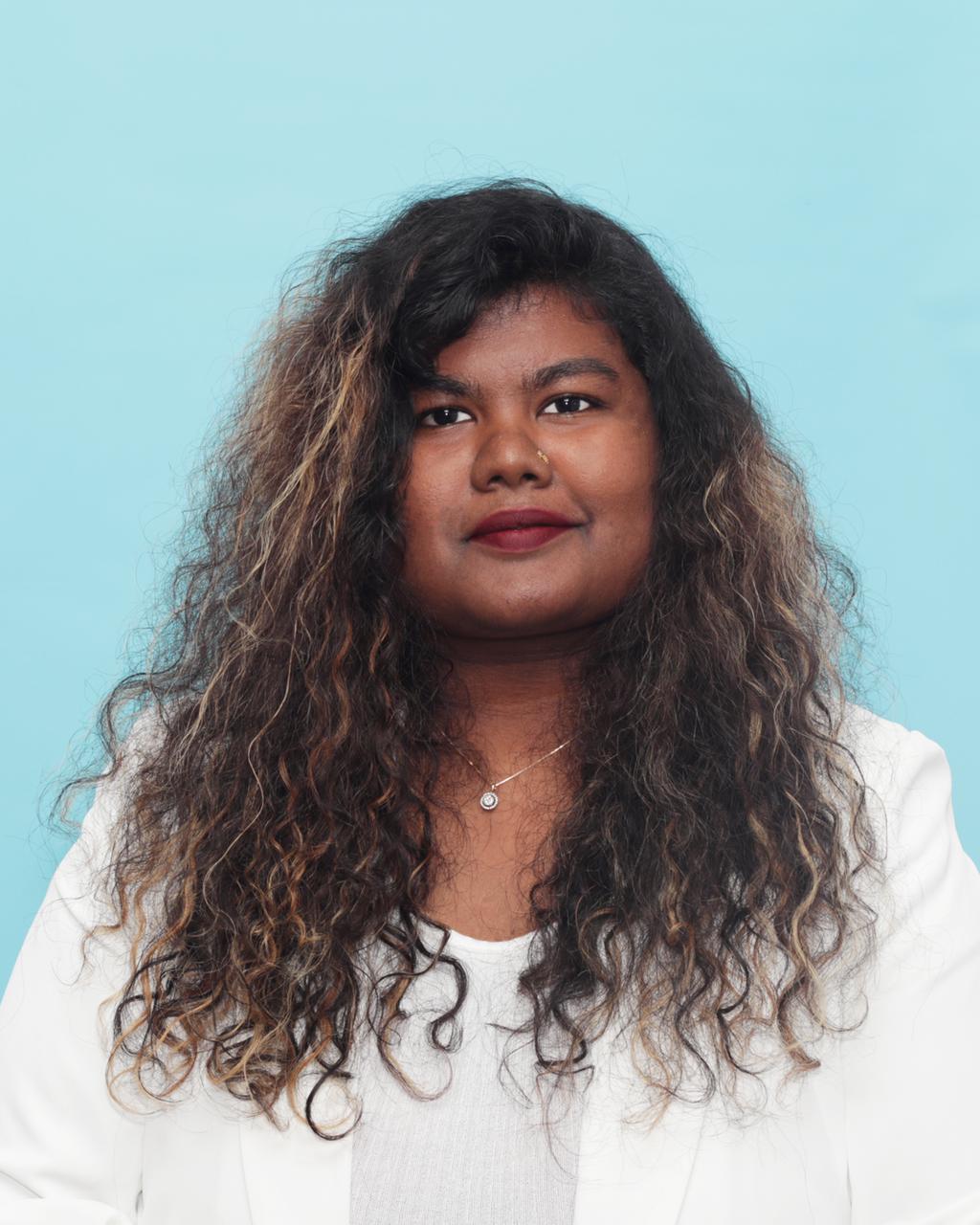

At ExoGeo, she is working on sending satellites that could refuel the satellites, so that they don’t become redundant, and don’t add to space junk. “Also, we are working on moving the redundant satellites to graveyard orbit by building space tugs.” ExoGeo has already finished working on the preliminary design of space tugs and the demonstration is expected to happen by the end of 2023 or early 2024.
An astronaut in the making
While her entrepreneurial goals metamorphosed into reality, she also gave wings to her childhood dream of becoming an astronaut when she was selected under Project PoSSUM by the International Institute of Astronautical Science in 2022. “It trains people to become citizen astronauts so that one doesn’t remain a mere passenger when they go to space, instead they carry valuable research activities,” says Aathira. Training that’s jointly supervised by NASA, the National Research Council of Canada, and the Canadian Space Agency can take up to five years to complete. This April, Aathira will be flying to Poland for the next part of her training. “I’d be permitted to access the Polish army airbase which is known for state-of-the art training,” reveals the Kerala native.
The last year was a roller coaster for Aathira. If she has inched closer to becoming an astronaut, she has also received threats from people for being bisexual. It was last year that she came out, and it has been an uphill task for her ever since. “One country denied me training because of my sexuality. I was very excited to train there because of their state-of-the-art facility but they wrote to my trainer stating that their country’s laws are against homosexuality.” The 24-year-old says that being openly bisexual has had an impact on her career as “the discrimination is subtle.” She adds, “When people say things behind your back, you don’t even know how to deal with it. Every time they make it hard for me to go to space, but that’s not my end goal. I truly want to make space education more accessible to people.”
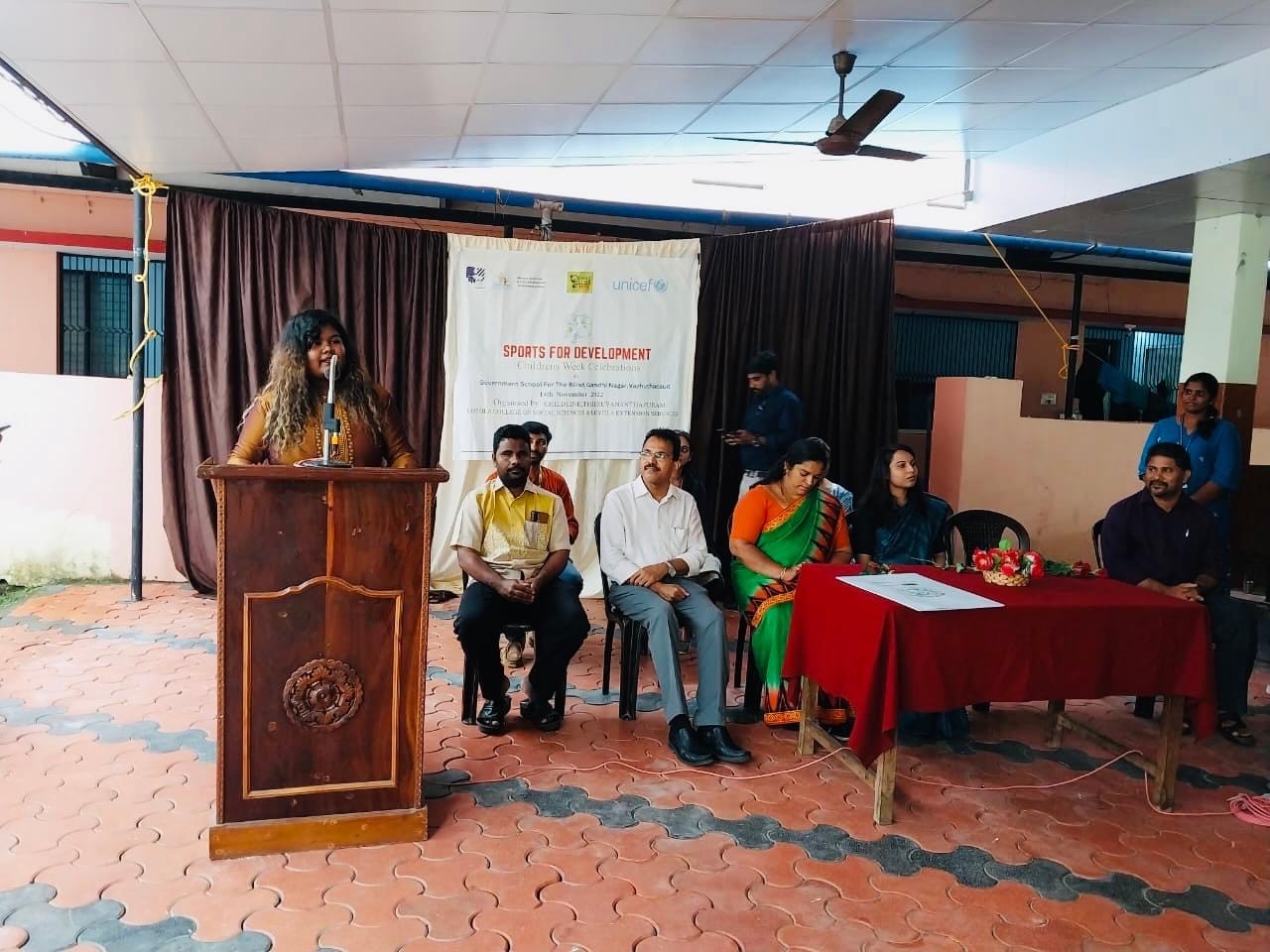

Aathira, who loves reading, painting, and writing poetry, is on a mission to improve people’s standard of living through space technology. “I want the benefits of technology to reach the common man. Though I am working on a small scale, I want to make a difference with my work,” she signs off.

